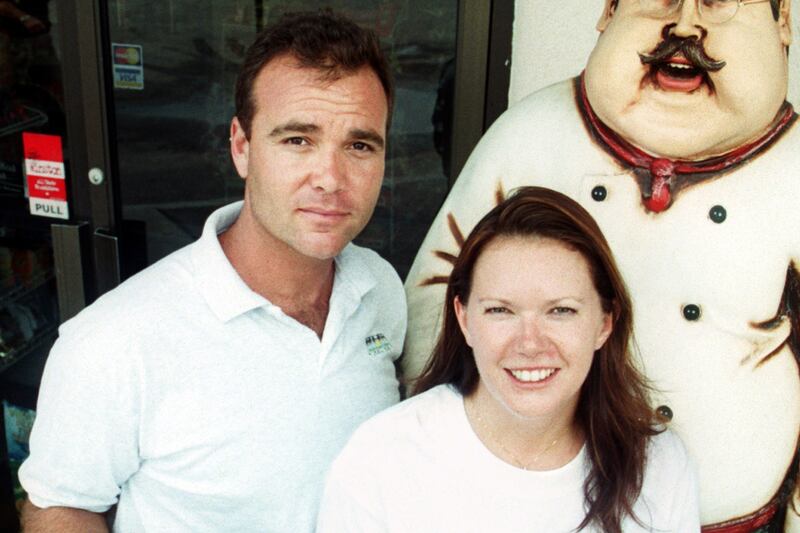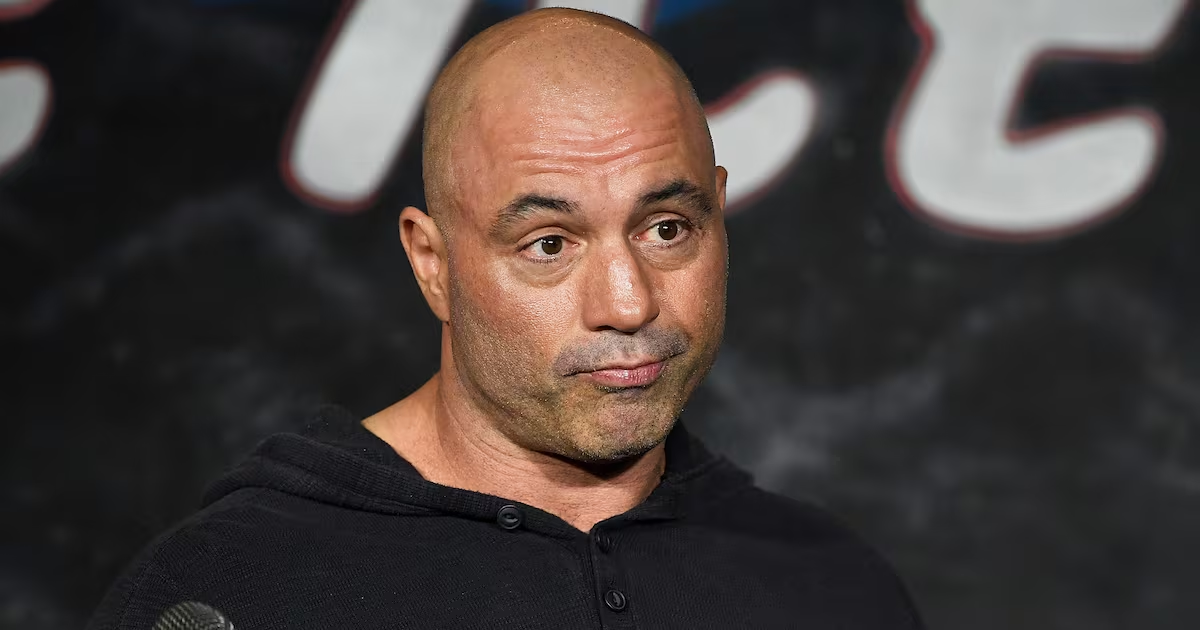Prosecutors made their final pitch yesterday in the trial of a Lomita, Calif., chef who told detectives that he slow-cooked his wife in a 55-pound pot before he drained her fat and hid her skull in the attic of his mother’s home.
“It sounds too gruesome, beyond comprehension and something you see in a made-for-television movie that is an exaggeration of real life,” said Los Angeles prosecutor Deborah Brazil in closing arguments. “This is no exaggeration.”
Brazil told the jury that David Viens killed his 39-year-old wife in their apartment on Oct. 18, 2009, in a fit of rage because he suspected she stole money from the sandwich shop they owned together, Thyme Contemporary Café. After he allegedly killed her, he put her 105-pound body in a garbage bag, drove to the sandwich shop, and boiled her body for four days in a pot, the prosecutor said. Then, he used a cart to wheel the pot outside to a nearby locked shed where he waited until the body was “unidentifiable,” Brazil said.
To make her point to the jury, Brazil played a portion of the audiotape of Viens’s alleged confession to police, in which he claimed that after he cooked her he “strategically placed the rest of her remains in the dumpster with garbage and other crap."
Viens, who denies he killed his wife intentionally, later told detectives that he hid her skull and jawbone in the attic of his mother’s house in Torrance. Brazil said he kept the remains because he planned to plant them in the mountains or desert so an unsuspecting hiker could find them and he could later claim, “oh my God, her skull was found in the desert,” she said.
The closing arguments marked the end of a 10-day trial that featured scores of teary-eyed witness testimonies, an outburst from Viens, and, most prominently, the audiotape of Viens’s alleged confession to police on March 1 and March 15, 2011, where he is heard explaining in gruesome detail how he bound his wife with duct tape, panicked when he awoke to find her dead and “cooked'’ her body for four days to get rid of her remains.

Viens, who is in a wheelchair, claimed that he woke up four hours later and found her dead.
“There is not the evidence in this case that David Viens is guilty of first degree murder,” said defense attorney Fred McCurry. “Because there was a death it doesn’t mean it was murder.”
McCurry said that Viens’s statements to police cannot be trusted because he gave them from a hospital bed when he was high on a “cocktail of different medications.”
“We aren’t talking about a person walking around on two feet,” the defense attorney said. “We are talking about a person who is laid out in a hospital bed with all kinds of medication.”
Last week during the trial, Viens, now 49, lost a last-minute bid to act as his own attorney. In an outburst in front of the jury, Viens stood up and told superior court Judge Rand S. Rubin that he wanted to fire his attorney. “In my sound discretion, your request to represent yourself is respectfully denied,” the judge told Viens.
The investigation into Dawn Viens’s disappearance began on Nov. 18, 2009, when her sister, Dayna Papin, and friends reported her missing. In a police interview, Viens told police he and his wife, who met in the 1990s when David was still married to his first wife, got into a fight about her drinking and she needed time on her own.
However, friends, family, and police didn’t buy his claim. When customers at the sandwich shop asked about her, Viens offered various answers, prosecutor Brazil said. “She’s gone to rehab,” he said, according to the prosecutor. “She went to the mountains. She left for the East Coast to visit friends.”
“People kept asking, ‘Where is Dawn?’” said Brazil. “‘Where is Dawn?’ In response to that question over and over again there are lies.”
Brazil said that after Viens allegedly killed Dawn he purposefully kept her phone and then coerced his 19-year-old daughter Jacqueline to send text messages to Dawn’s friends to throw off suspicions and to make it look like she left voluntarily.
“He used a 19-year-old young woman to manipulate others into believing Dawn simply left voluntarily,” said Brazil.
During their hunt for Dawn Viens, missing persons detectives interviewed longshoreman Todd Stagnitto, who told them that on the night she disappeared he saw her husband going through the restaurant receipts and counting up the day’s tally. Viens appeared agitated, Stagnitto said, and told him the money was short for that day.
“He said, ‘That bitch is stealing from me. Nobody steals from me. I will kill that bitch,’” Stagnitto testified. Later that night, Stagnitto said he got a call from a distraught Dawn: “She was crying and at times kind of incoherent and upset David was not happy with her work.” A few days later, he received a text message purportedly from Dawn explaining that she was leaving town. “I need to clear my head,” he said the message read.
Karen Patterson, Dawn’s best friend, told police two months before she vanished that she saw red marks on Dawn’s neck. According to Patterson’s testimony, Dawn said that Viens choked her the night before. “She told her friend the night before her husband grabbed her by the neck and tried to choke her,” Brazil said. “Dawn said she didn’t want the police involved. She was OK. She didn’t pass out.”
The next month, Dawn allegedly called Patterson claiming that she locked herself in the bathroom because her husband threatened to beat her up. Patterson testified that she was going to call the police but Dawn begged her not to. “I’m locked in the bathroom and he won’t forgive me if I call the police,” Brazil said. “If I ruin his dream.”
A few days after Dawn disappeared, Patterson told detectives she went to the sandwich shop looking for her friend and noticed that Viens had a bandage on the top of his hand. “She thought it was unusual,” Brazil said. “She never observed an injury on his hand in that fashion. He told her he burned his hand.”
The case was turned over to homicide detectives in August of 2010 after they found no activity on her credit card or cell phone. She left behind her clothing and vehicle.
“There was no indication that Dawn was alive,” Brazil said.
Detectives caught their first big break when they flew to South Carolina and spoke to Viens’s daughter. “The little girl Dawn cared for and loved had to bare the secrets that her wretched father confided to her,” said Brazil. “He burdened his young daughter with that information and manipulated her to help him get away with murder ... She said she was freaked out and had to tell someone. She said she was miserable knowing what her father had done. But she spoke up for Dawn and that is why we are here.”
After the interview, detectives told Jacqueline to call her father to let him know that she had talked to the police. The following day, after reading an article in The Daily Breeze, which had a story about his alleged involvement in his wife’s death, Viens attempted to commit suicide by diving feet first off a cliff in Rancho Palos Verdes. He survived, and in 2011, the Los Angeles County district attorney’s office charged him with the murder of his wife.
“We are here today because of Dawn Viens, because her life mattered and how she died matters greatly,” Brazil said. “Viens doesn’t display the demeanor of a man who is concerned about the well-being of his wife. He displays the demeanor of a man getting away with murder.”
Closing arguments will continue today.





